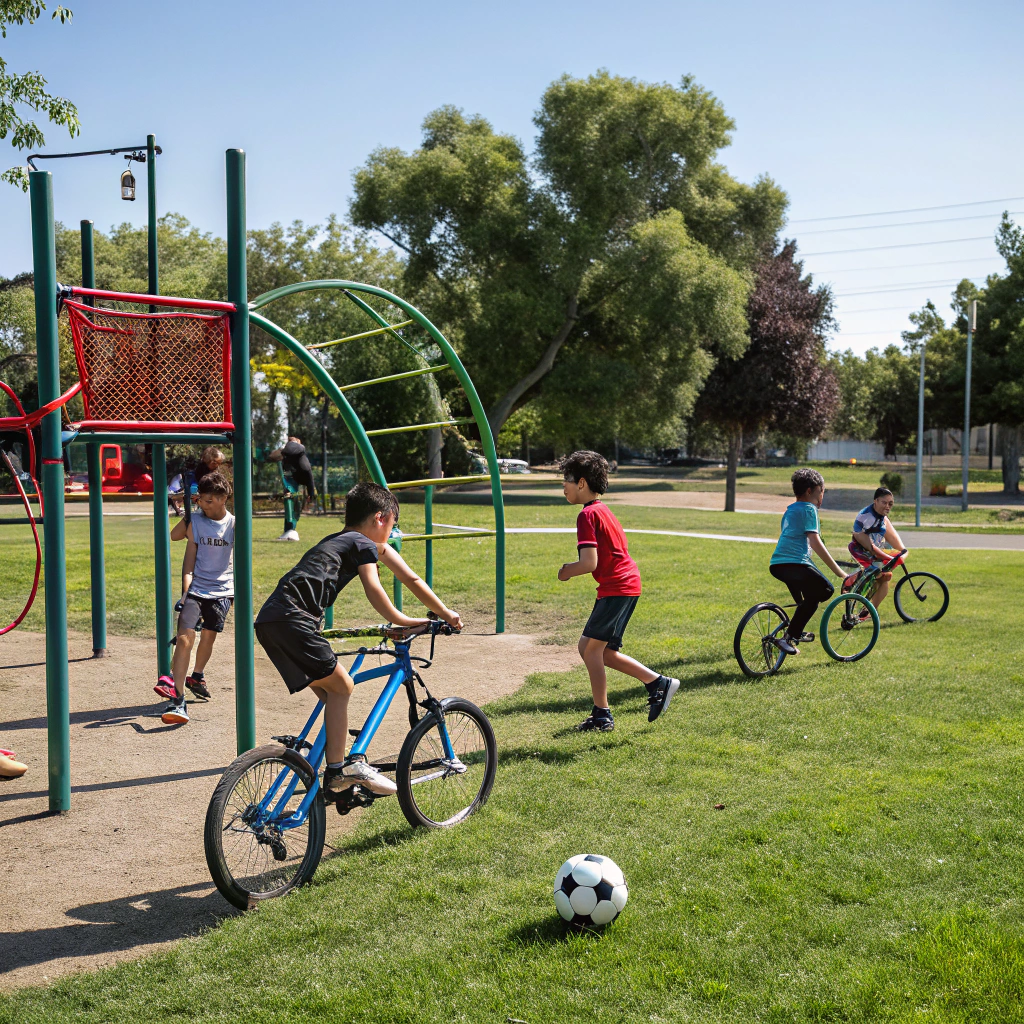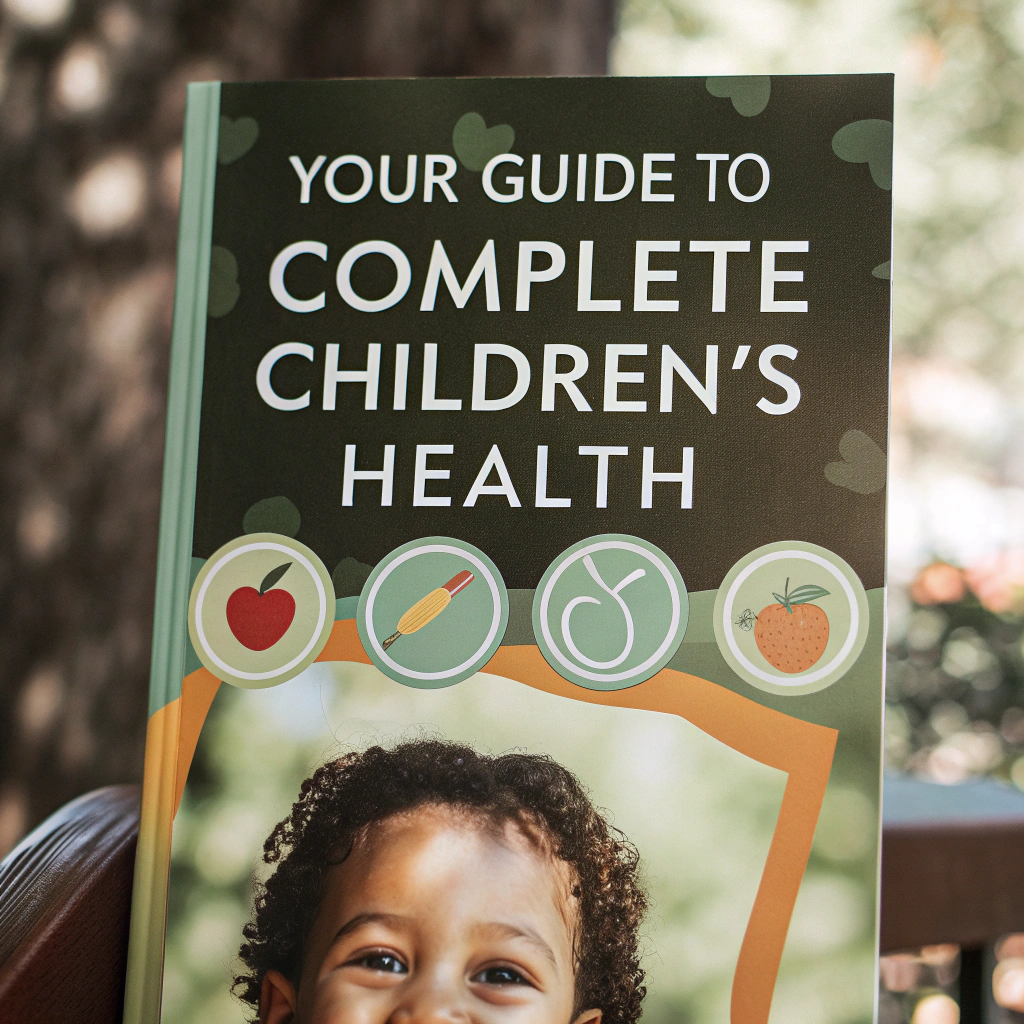Raising a healthy child goes beyond just feeding them nutritious meals. It encompasses a balanced approach to their physical, emotional, and mental well-being. Your Guide to Complete Children’s Health is here to provide you with the essential tools and knowledge to nurture your child’s growth and development. From understanding the importance of proper nutrition and exercise to supporting their mental health and emotional needs, this guide will help you create a strong foundation for your child’s health and happiness. Whether you’re a new parent or looking to enhance your child’s wellness, this guide offers practical advice for every step of their journey.
1. The Importance of Nutrition in a Complete Children’s Health Guide
Good nutrition is the foundation of a child’s health. From infancy through adolescence, proper nutrition helps support growth, immunity, and cognitive development. Here’s how you can promote healthy eating habits in your child:
- Balanced Meals: Offer a variety of fruits, vegetables, whole grains, and protein sources. This ensures they get the nutrients necessary for their body to function at its best.
- Portion Control: Serve appropriate portions for your child’s age and activity level. Avoid excessive sugary snacks and processed foods.
- Hydration: Encourage water as the primary drink. Avoid sugary drinks like soda and excessive juice.
Tip: Get your child involved in meal planning and preparation to spark their interest in healthy foods.

2. Physical Activity and Exercise
Physical activity is crucial to a child’s development. Not only does it help build strong muscles and bones, but it also promotes a healthy heart, boosts mood, and improves sleep quality.
- Outdoor Play: Encourage active play, such as running, cycling, or sports. Outdoor activities help children develop motor skills and social abilities.
- Limit Screen Time: The American Academy of Pediatrics recommends no more than two hours of recreational screen time per day for children aged 6 and older.
- Routine: Try to incorporate physical activity into your child’s daily routine, whether it’s walking to school or a family game night.
Tip: Make exercise fun! Dance parties, scavenger hunts, or family hikes are great ways to keep children engaged. Learn more about Physical Development in Children.
3. Mental and Emotional Well-Being
In addition to physical health, mental and emotional well-being plays a vital role in your child’s overall health. Children need a stable environment where they feel safe, valued, and understood.
- Create a Positive Environment: Encourage open communication with your child. Be supportive and understanding of their emotions and struggles.
- Teach Coping Skills: Help your child develop healthy ways to cope with stress, such as deep breathing, journaling, or taking breaks when they feel overwhelmed.
- Encourage Social Interaction: Social skills are critical for emotional health. Arrange playdates or group activities where your child can interact with peers and develop relationships.
Tip: Children often model behavior from their parents, so lead by example in managing your own stress and emotions. Check out Nurturing Social and Emotional Growth in Children for detailed strategies.

4. Sleep and Rest: A Vital Part of the Complete Children’s Health Guide
Sleep is essential for a child’s development, and establishing healthy sleep habits is crucial. A good night’s rest supports growth, learning, and emotional regulation.
- Set a Routine: Create a consistent bedtime routine to help your child wind down. This may include activities like reading a book, taking a warm bath, or practicing relaxation techniques.
- Sleep Environment: Make sure your child’s sleep environment is comfortable, quiet, and free from distractions like electronics.
- Sleep Duration: Depending on age, children need between 9 and 14 hours of sleep each night. Adjust the bedtime based on their specific needs.
Tip: Encourage your child to avoid caffeine and large meals close to bedtime.
5. Regular Health Check-Ups and Preventive Care
Regular doctor visits are crucial to track your child’s growth, development, and vaccination schedule. These check-ups allow healthcare professionals to spot potential issues early on and provide preventive care.
- Vaccinations: Ensure your child receives all recommended vaccines to protect them from preventable diseases.
- Routine Screenings: Regular screenings for vision, hearing, and dental health can catch early signs of any problems.
- Growth Monitoring: Keep an eye on your child’s height, weight, and developmental milestones to ensure they are growing at a healthy rate.
Tip: Keep track of your child’s medical records and appointments to ensure they stay on track with their health needs.

6. The Role of Education in Health
Education plays a significant role in shaping your child’s health mindset. Helping them understand the importance of maintaining a healthy lifestyle will empower them to make better choices as they grow older.
- Healthy Habits Education: Teach your child about healthy foods, the importance of physical activity, and managing emotions. This will lay the foundation for long-term wellness.
- Promote Self-Care: As your child gets older, encourage them to take ownership of their health by developing their own healthy habits, like exercising, eating well, and managing stress.
Tip: Make learning about health fun with activities like cooking together, visiting a farmer’s market, or experimenting with new physical activities.
Conclusion
Ensuring your child’s health is a multifaceted effort that involves much more than just physical care. By focusing on proper nutrition, encouraging physical activity, fostering mental well-being, ensuring enough sleep, and promoting regular health check-ups, you can help your child lead a healthy and happy life. This guide provides you with a roadmap, but remember that every child is unique. Adjust these tips based on their individual needs and circumstances to give them the best chance for a bright future.

